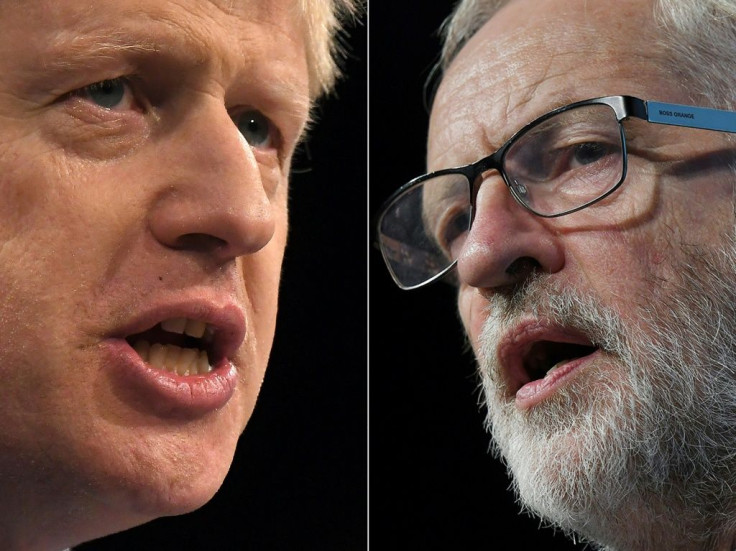Labour’s Party Plans To Nationalize Telecoms, Provide Free Broadband Derided And Mocked

The British Labour Party’s proposal to partly nationalize the country's dominant telecom company BT Group PLC and provide free full-fiber broadband to every British home and business by the year 2030 was ridiculed by the Conservatives and mocked by others as unrealistic or even harmful.
Following Tuesday night’s first televised debate of the general election, British Prime Minister Boris Johnson is ahead of Labour rival Jeremy Corbyn on most polls in advance of the mid-December election. A quick poll by internet market research and data analytics firm YouGov taken immediately after the debate showed Johnson beating Corbyn 51% to 49% among TV viewers.
Labour’s Plans
Labour said under its plan the nationalized telecom company would have the name “British Broadband” and that BT’s existing shareholders would receive government bonds as compensation.
Costs of this program, Labour estimated, would be £20 billion ($25.8 billion) up front and £230 million ($296.8 million) annually afterwards.
The program, Labour said, would be paid for by taxing U.S. tech giants like Amazon (AMZN), Facebook (FB), and Alphabet (GOOGL), the parent Google .
“What was once a luxury is now an essential utility,” Corbyn said, to explain the proposal. “That’s why full-fiber broadband must be a public service.”
Reactions
Johnson condemned the plan as “slightly fantastical” and “crackpot.”
BT itself responded to Labour’s proposal by stating that “it should be a top political priority to super-charge the roll-out of full fiber broadband and 5G right across the U.K. so we can build the digital economy of the future. Whatever the result of the election, we'd encourage the next government to work with all parts of the industry to achieve that."
BT’s chief network architect, Neil McRae, tweeted, “Labour plans broadband communism.”
While polls predict that Conservatives will likely win the election, a BT shareholder cautioned: “The common view is that this isn’t going to come to pass because Labour isn’t going to be elected. But you can’t be complacent.”
Costs
Questions about the actual costs of such a massive project have also been raised.
Ofcom, Britain’s telecommunications regulator, estimates 27.1 million of a total 29.6 million homes and businesses in the U.K. currently do not have full-fiber broadband. BT has estimated that hooking up everyone in the country would cost £100 billion ($129 billion) upfront, far beyond Labour’s initial £20 billion target.
Greig Paul, lead mobile networks and security engineer at University of Strathclyde, wrote, “Labour appears to significantly underestimate the costs while possibly overestimating the savings.”
Ultimately, Paul added: “The question to ask is whether guaranteed full-fiber connections in every home is justifiable if the program started to run several times over budget, as seems likely. There would be a very real risk of non-delivery if the project keeps going over budget.”
Smaller Players
The proposal to nationalize parts of BT has irked some smaller telecom operators in Britain, who fear they cannot compete with a government-owned telecom entity that offers free broadband.
Richard Tang, founder of Zen Internet, an independent telecom firm and Steve Leighton, chief executive of rural broadband company Voneus, both told Financial Times their staffs feared losing their jobs if Labour wins the election. CityFibre, a provider of wholesale fiber network infrastructure, has postponed a £1.5 billion ($1.94 billion) plan to invest in expanding its network until after the election.
Andrew Glover, the chairman of Internet Service Providers Association, a British trade organization for internet service providers, said if Labour’s proposal becomes reality “jobs and businesses will be wiped out.”
Indeed, Fitch Ratings warned Labour’s plans also “would likely put an end to private-sector investments in network connectivity,”
© Copyright IBTimes 2025. All rights reserved.





















